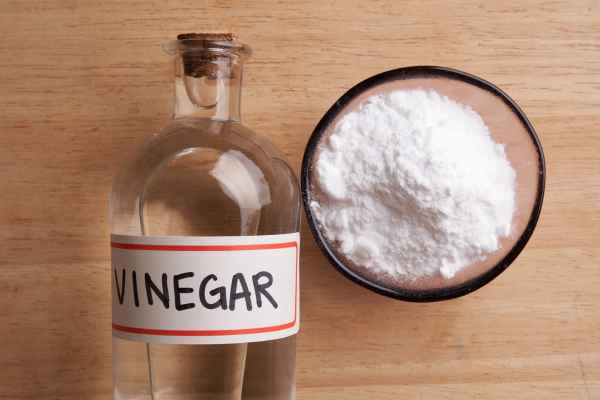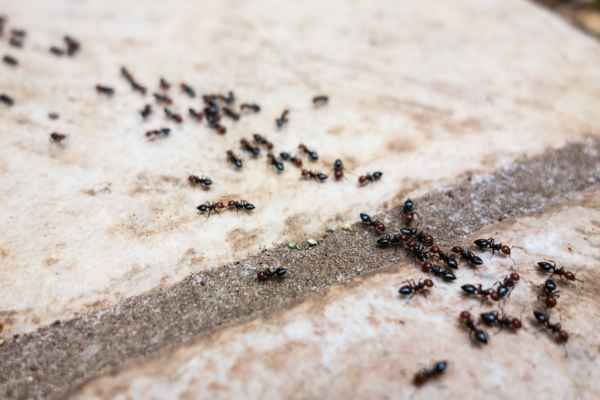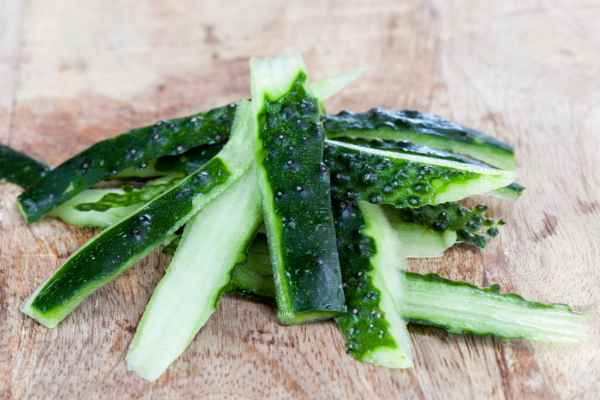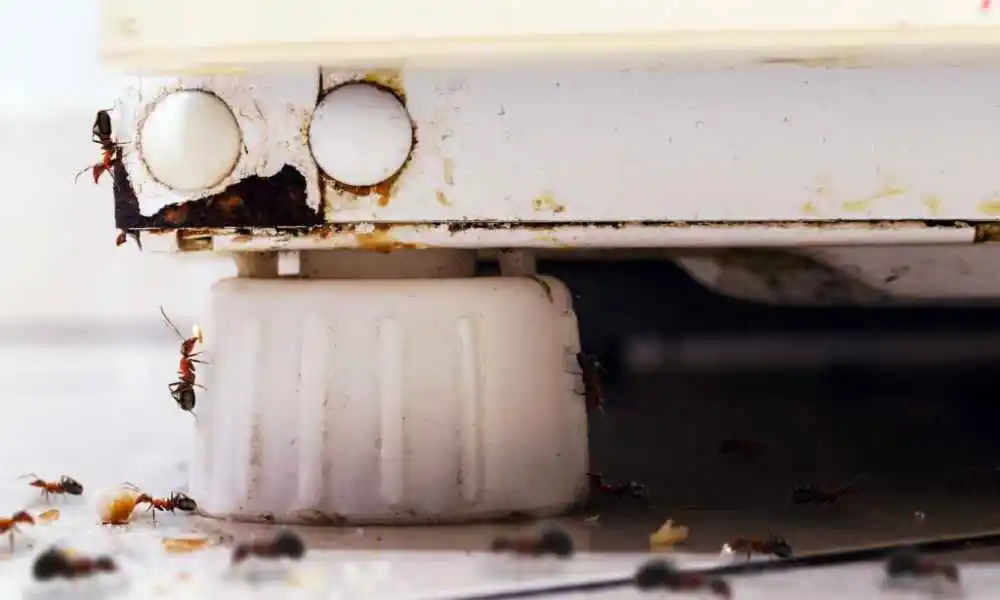Ants in the kitchen can turn your culinary haven into a source of frustration. Battling these tiny invaders requires understanding their behavior and implementing effective strategies. In this guide, we’ll explore tried-and-true methods to get rid of ants in your kitchen, ensuring a clean and pest-free environment. From natural remedies to preventative measures, we’ll cover a range of solutions suitable for every household. Whether you’re dealing with a minor annoyance or a full-blown infestation, our tips will help you reclaim your kitchen space and enjoy cooking and dining without unwanted guests.
Why Do Ants Keep Coming Back?
Ants keep returning to kitchens primarily due to the availability of food and water. These insects are constantly in search of resources to support their colonies, and kitchens often provide ample supplies like crumbs, spills, and standing water. Additionally, if ants have established a scent trail to a food source in your home, it will continue to attract more formicids until the trail is disrupted. Moreover, if the nest or colony is not dealt with, ants will persistently return. Therefore, thorough cleaning and sealing of entry points, along with addressing the root colony, are crucial for long-term ant control.
Importance Of Getting Rid Of Ants In Kitchen
Food Contamination Prevention
Ants in the kitchen can easily contaminate food. They travel through various environments before arriving in your kitchen, picking up germs and bacteria along the way. When they crawl over your food and surfaces, they can transfer these harmful microorganisms, potentially leading to foodborne illnesses. Eliminating formicids ensures that your food remains safe to eat.
Maintaining a Hygienic Environment
A kitchen free of ants is a cleaner and more hygienic space. Ants can leave behind waste and pheromone trails, which can attract more formicids and other pests. Regularly dealing with ant infestations helps in maintaining the overall cleanliness and hygiene of your kitchen, contributing to a healthier living environment.
Protection Against Structural Damage
Some species of ants, like carpenter ants, can cause structural damage to your home. While not as destructive as termites, they can still weaken wooden structures over time. By preventing ant infestations, particularly of these types, you’re also protecting your home from potential structural issues.
Avoidance of Allergic Reactions or Bites
Certain types of formicids can bite or cause allergic reactions in sensitive individuals. Ant bites, though generally harmless, can be painful and irritating. In rare cases, they can cause allergic reactions. Keeping your kitchen ant-free reduces the risk of such unpleasant encounters for you and your family.
Reducing Stress and Improving Quality of Life
An ant-free kitchen is more pleasant to work in and reduces the stress associated with pest infestations. Knowing that your ants free kitchen is clean and rid from pests can significantly improve your quality of life and enjoyment of your home. It creates a more inviting and comfortable environment for cooking and gathering.
Here Are Some Ideas on How To Get Rid Of Ants In Kitchen
Vinegar Solution

Vinegar is a potent cleaning agent and also an excellent deterrent for ants. Its strong smell is unappealing to ants, and its acidity disrupts their scent trails. To create a vinegar solution, mix equal parts of water and white vinegar in a spray bottle. Spray this mixture around areas where ants are present, such as countertops, sink areas, and along baseboards. Not only does it deter formicids, but it also leaves your kitchen surfaces sparkling clean. For added effectiveness, repeat the application daily until the ants disappear.
Lemon Juice

Lemon juice works similarly to vinegar in disrupting the ants’ scent trails. Its citrus scent is strong and displeasing to ants. To use lemon juice as an ant repellent, squeeze the juice of a lemon and mix it with water. You can also add lemon peels to the mixture. Apply this solution along windowsills, doorways, and other entry points. Lemon juice is a natural and safe way to keep formicids at bay while leaving your kitchen with a fresh, citrusy aroma.
Peppermint Essential Oil
Peppermint essential oil is not only refreshing but also an effective ant repellent. Its strong scent is intolerable to ants and can effectively deter them from entering your kitchen. To use, add a few drops of peppermint oil to a cup of water and spray it around the kitchen, especially near entry points and ant trails. Besides repelling formicids, peppermint oil also has the added benefit of giving your kitchen a pleasant, clean scent.
Borax Bait

Borax is a natural mineral that can be used to create an effective ant bait. Mix borax with sugar in a 1:3 ratio and add a little water to create a paste. Place this mixture on small pieces of cardboard or in shallow containers where ants are frequently observed. The sugar attracts the ants while the borax acts as a toxin to them. It’s important to place these baits out of reach of children and pets, as borax can be harmful if ingested. This method is particularly useful for targeting the whole colony, as the formicids will carry the bait back to their nest, potentially eliminating the queen and other formicids.
Cinnamon Sticks or Powder

Cinnamon is more than just a spice for your dishes; it’s also an excellent ant repellent. Its strong smell is something ants tend to avoid. You can use either cinnamon sticks or ground cinnamon. Place cinnamon sticks at entry points or sprinkle cinnamon powder in areas where formicids are seen. This not only keeps ants away but also adds a warm, comforting scent to your kitchen. While it’s a gentle deterrent, consistent application may be necessary for lasting effectiveness.
Coffee Grounds

Coffee grounds are a surprisingly effective method for deterring ants. Ants dislike the strong smell of coffee and will typically avoid areas where it’s present. To use this method, simply sprinkle used coffee grounds around your kitchen’s perimeter and in gardens or along the outside of your home where formicids are likely to enter. The grounds can also be placed in small bowls near entry points. Not only does this method repel ants, but it also recycles your coffee grounds and can even benefit plant soil as a fertilizer.
Chalk Lines

Drawing lines with chalk is a simple and safe method to keep ants away. The calcium carbonate in the chalk acts as a natural deterrent. Draw lines of chalk around entry points such as windows, doors, and other small openings where formicids may enter your kitchen. For better effectiveness, you might need to reapply the chalk lines periodically, especially if they become wet or are wiped away. This method is particularly handy as it’s non-toxic and safe around children and pets.
Cucumber Peels

Cucumber peels are another natural and safe way to deter ants. Ants find the scent of cucumber peels unattractive. Place fresh cucumber peels in areas of ant activity. This method is most effective when the peels are as fresh as possible, so replacing them regularly is necessary. This method is especially appealing to those who prefer not to kill the formicids but simply to redirect their path away from the kitchen.
Diatomaceous Earth

Diatomaceous earth (DE) is a fine powder made from the fossilized remains of tiny, aquatic organisms called diatoms. This powder is non-toxic to humans and pets but lethal to formicids and other crawling insects. When ants walk over diatomaceous earth, it absorbs the oils in their skeletons, dehydrating and killing them. Sprinkle DE along ant trails, near entry points, and in areas where formicids are seen. When using diatomaceous earth, opt for the food-grade version for safety, and apply it in dry conditions as moisture reduces its effectiveness.
Seal Entry Points
One of the most effective ways to keep ants out of your kitchen is by sealing their entry points. Ants can enter through the smallest of gaps, so it’s important to inspect your kitchen thoroughly. Look for cracks and crevices in walls, gaps around windows and doors, and any other small openings. Use caulk or a similar sealant to close these entry points. This not only prevents formicids from entering but also improves the overall insulation of your home, potentially reducing energy costs.
Keep Surfaces Clean
Maintaining cleanliness in the kitchen is crucial in deterring ants. Ants are attracted to food particles and residues, so it’s important to wipe down counters, sweep floors, and clean spills immediately. Regularly emptying the trash and ensuring that food is stored in airtight containers can also significantly reduce the likelihood of attracting formicids. A clean kitchen is less inviting to formicids and other pests, making it an essential step in both prevention and control.
Remove Standing Water

Ants, like all living creatures, need water to survive. Eliminating sources of standing water in and around your kitchen is key to making it less hospitable to formicids. Check for leaky faucets, pipes, and any other areas where water may accumulate. Keeping your kitchen dry not only deters formicids but also prevents the growth of mold and mildew, contributing to a healthier home environment.
The Final Thought
Get rid of ants in the kitchen requires a combination of prevention, identification, and treatment methods. By keeping the kitchen clean and free of food scraps, sealing entry points, and using natural repellents or commercial ant baits, homeowners can effectively control ant infestations. It is important to regularly inspect for signs of formicids and address any issues promptly to prevent further spread. Additionally, seeking professional help may be necessary for severe infestations that are difficult to manage independently.
